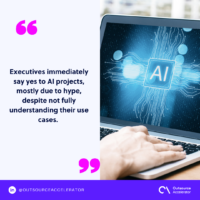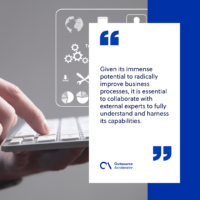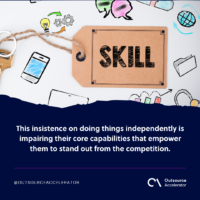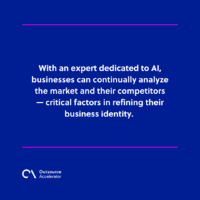Can’t do it alone
Companies are trying to figure out artificial intelligence (AI) by themselves and are failing miserably.
A study from the Massachusetts Institute of Technology (MIT) found that an astounding 95% of generative AI pilot programs in firms are not achieving measurable results.
It’s not because AI doesn’t work. Rather, most companies lack the technical know-how to integrate and utilize their AI platforms. Executives immediately say yes to AI projects, mostly due to hype, despite not fully understanding their use cases.
Critically, the study also found that partnering with external experts succeeded 67% of the time compared to just 33% for internally built AI platforms. Working with AI vendors led to faster implementation, cost savings, and smoother integration into workflows. This dispels fears among businesses that working with third-party firms is more expensive and could lead to misalignment problems.
AI software is a sophisticated and highly powerful tool. Given its immense potential to radically improve business processes, it is essential to collaborate with external experts to fully understand and harness its capabilities. AI is not just plug-and-play.
Standing out
This insistence on doing things independently is impairing their core capabilities that empower them to stand out from the competition. As more people join the AI bandwagon, this quest to be exceptional has become increasingly challenging.
Significant technological advances have lowered the barriers to entry for starting a business. Almost every week, there’s a new startup that has raised millions in seed funding to hasten its initiatives. The business environment has become so dense that it’s difficult to differentiate one from the other.
Affixing “AI-powered” to their taglines isn’t enough for customers and investors. They seek individuals who are aware of their strengths, have a deep understanding of the industry, and give them what they need.
Partnering with experts allows firms to have a running conversation about AI and its capabilities to accelerate processes and spark innovation. With an expert dedicated to AI, businesses can continually analyze the market and their competitors — critical factors in refining their business identity.
AI is already streamlining various back-office processes. It will get better at analyzing market trends, drafting sales and marketing pitches, and other client-facing activities. Combining AI’s ability with human input, such as critical thinking and emotion, is the workflow of the future. Companies will still need human input to ensure their corporate identity remains strong amid increasing competition.
The only way to nurture human staff is to invest time in them. A company cannot engage fruitfully with its employees if they’re busy trying to figure out AI on their own.
The question for your business
How are you managing your AI initiatives?





 Independent
Independent





















